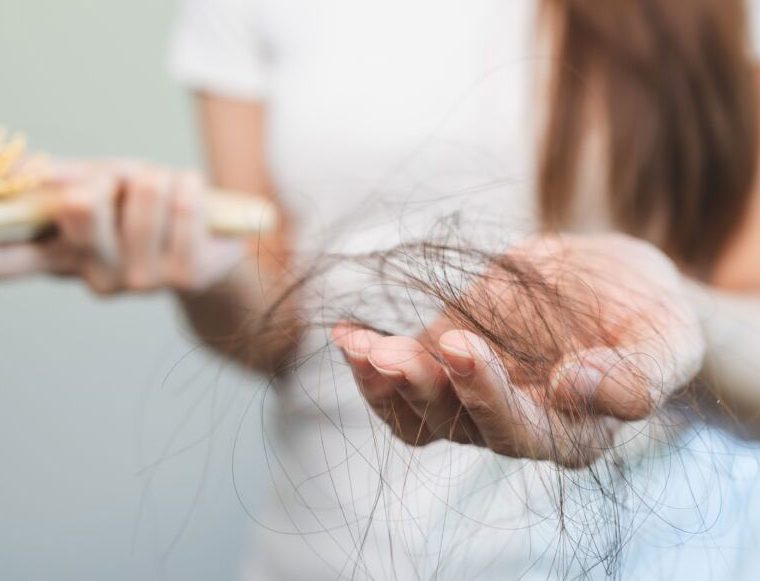Hair loss affects millions of people around the world — and its impact extends far beyond appearance. It often carries emotional and psychological weight, influencing confidence and self-image. While genetics, hormones, and lifestyle choices are widely recognized causes, one crucial yet frequently neglected factor is vitamin deficiency.
Vitamins are essential micronutrients that support numerous body functions, including the mechanisms responsible for healthy hair growth. Insufficient levels of certain vitamins — particularly Vitamin D, B12, and iron — can disrupt the hair growth cycle, weaken strands, and even lead to temporary or chronic hair loss.
Understanding how these nutrients interact with the scalp and follicles helps identify deficiencies early and adopt more effective solutions for hair restoration.
What Exactly Is Hair Loss and Why Does It Occur?
Hair loss, or alopecia, refers to the gradual thinning or complete absence of hair from areas where it normally grows. It can appear as diffuse shedding, patchy bald spots, or total baldness, depending on the underlying cause.
Common Causes Include:
- Genetic Factors: Hereditary baldness such as male and female pattern hair loss.
- Hormonal Changes: Pregnancy, menopause, or thyroid dysfunction can alter the hair cycle.
- Medical Conditions: Autoimmune disorders and scalp infections like alopecia areata.
- Medications: Drugs for hypertension, depression, or cancer treatments.
- Stress: Emotional or physical stress can induce temporary shedding (telogen effluvium).
- Hairstyling Practices: Tight hairstyles or harsh chemicals that damage follicles.
Temporary vs. Permanent Hair Loss
- Temporary: Often caused by stress, diet, or medications. Once the underlying issue is resolved, hair regrowth usually resumes naturally.
- Permanent: Caused by genetic or hormonal changes leading to irreversible follicle damage. Treatments like PRP or hair transplantation may be needed.
Recognizing whether hair loss is reversible or permanent allows patients and specialists to select the most effective intervention.
How Vitamins Shape Hair Growth and Scalp Health
Healthy hair relies on a steady supply of nutrients to maintain follicle activity and growth rate. Each vitamin serves a unique function in this process:
- Vitamin D: Encourages the creation of new follicles and prevents miniaturization linked to alopecia.
- Vitamin B12: Supports the formation of oxygen-rich red blood cells that nourish hair roots.
- Iron: Enables proper oxygen transport to cells, fueling growth and strength.
- Vitamin A: Promotes sebum production for a hydrated scalp and supports tissue growth.
- Vitamin E: Shields follicles from oxidative damage caused by free radicals.
- Biotin (Vitamin B7): Reinforces keratin structure, enhancing strand thickness and resilience.
Even minor deficiencies in these nutrients can disturb the scalp’s balance and weaken follicles over time.
The Hair Growth Cycle: How Nutrition Influences Every Phase
The hair growth cycle occurs in three stages — and each is influenced by nutrition:
- Anagen (Growth Phase): Vitamins D and Biotin extend this phase, helping hair grow longer and thicker.
- Catagen (Transition Phase): Vitamin A and E help maintain follicle integrity during regression.
- Telogen (Resting Phase): Adequate nutrient levels prevent excessive shedding and premature follicle dormancy.
When vitamin levels drop, hair may enter the resting phase too early, resulting in thinning or shedding.
Beyond Nutrition: Other Key Triggers of Hair Loss
Although vitamin deficiencies play a critical role, other factors often interact with them:
- Hormonal Imbalances: Fluctuations in estrogen, testosterone, or thyroid hormones can alter follicle cycles.
- Genetic Inheritance: Family history significantly increases susceptibility to androgenetic alopecia.
- Stress and Environment: Emotional distress, pollution, and UV exposure create oxidative stress that weakens follicles.
- Medications and Medical Treatments: Chemotherapy, anticoagulants, or certain hormonal drugs may cause temporary loss.
A comprehensive diagnosis must therefore address all possible triggers to achieve lasting recovery.
Rebuilding Hair Health: Treatment and Management
1. Nourish Through Diet
A balanced diet rich in vitamins and minerals forms the foundation of healthy hair. Incorporate:
- Fatty fish, eggs, and dairy for Vitamin D and B12
- Leafy greens and legumes for iron and folate
- Nuts, seeds, and avocados for Vitamin E and healthy fats
Consistency matters — variety ensures your scalp receives a full range of nutrients for regeneration.
2. Supplement Wisely
When diet alone isn’t enough, supplements can correct deficiencies:
- Vitamin D, Biotin, Zinc, and Iron — taken under medical supervision.
Overuse can be harmful, so personalized dosage based on lab results is essential.
3. Consider Advanced Solutions
For individuals with permanent follicle loss:
- Hair Transplantation: Redistributes follicles from dense areas to thinning zones for a natural look.
- PRP or Mesotherapy: Boosts follicle vitality and accelerates regrowth through growth factor stimulation.
Conclusion: Vitamins as the Foundation of Stronger Hair
Hair loss is a multifactorial issue — and while genetics or stress often steal the spotlight, nutritional balance is equally vital.
Ensuring adequate levels of Vitamin D, B12, Iron, Biotin, and other micronutrients can significantly strengthen the hair growth cycle, improve follicle vitality, and prevent future thinning.
By combining a nutrient-rich diet, targeted supplementation, and expert-guided treatment, individuals can reclaim not only their hair but also their confidence.


